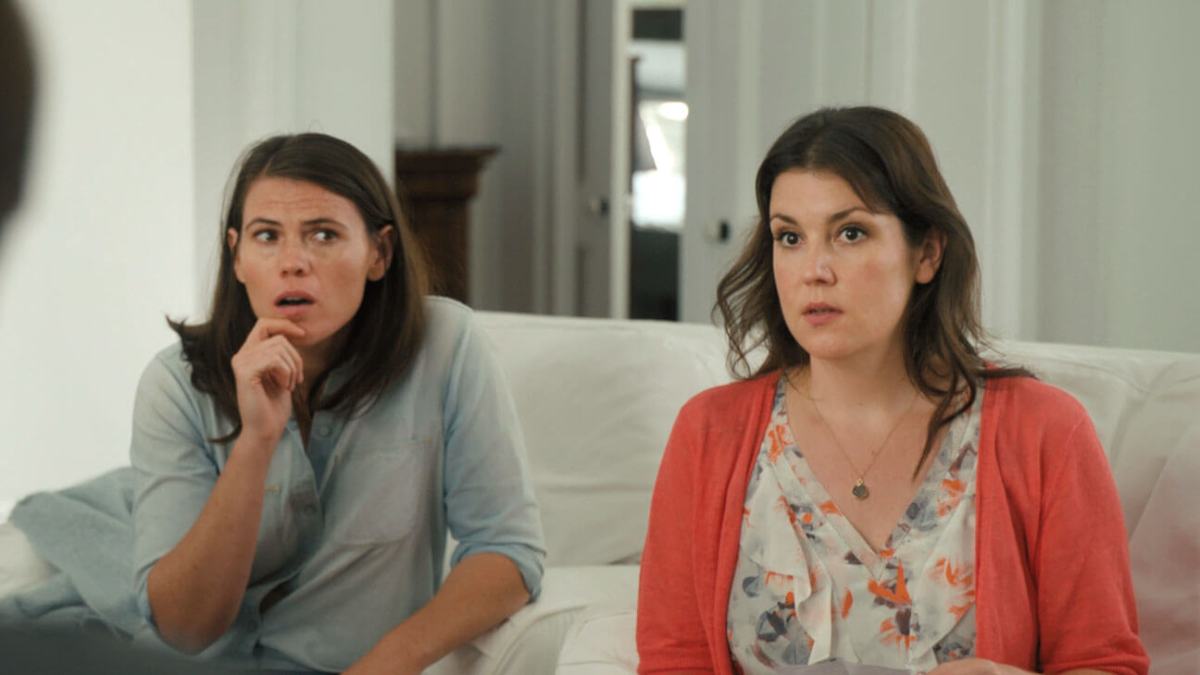‘The Intervention’ It shouldn’t be funny: A group of longtime friends stage what looks like a fun 30-something “Big Chill”-style getaway — but which, in truth, is actually an intervention about one couple’s deeply unhappy marriage. It shouldn’t be funny because this is serious business. (The pair have kids, for one thing.) And it shouldn’t be funny because indies, especially ones about old friends reuniting, tend to be painfully earnest, filled with high drama. But Clea DuVall’s “The Intervention” is very funny, early and often, which is not to say it’s not wise or even sensitive. Going in with little knowledge of what “The Intervention” is about (apart from the title) might be best: It shows you how witty DuVall’s script can be. As each character gets the standard introductory montage, we may not even know which one(s) will get the pile-on, and for what transgression. Even when it becomes clear it’s Ruby (Cobie Smulders) and Peter (Vincent Piazza) — who arrive at the rural getaway house mid-verbal tussle — things don’t go as planned. Everyone’s reluctant to reveal their ruse, even the newly-engaged Annie (Melanie Lynskey), who’s the intervention’s ringleader. One of them, Ben Schwartz’s Jack, starts ruining it by introducing doubt, even distaste, into the equation, pointing out how queasy it is to ask their friends to divorce. RELATED: Interview: Craig Robinson on “Morris from America,” going serious and Pokemon Go But it’s still a reunion movie, which means everyone has their own little dilemmas. DuVall’s Jessie has commitment issues with her current girlfriend, Sarah. (In a nifty meta movie turn, she’s played by Natasha Lyonne, her love interest from “But I’m a Cheerleader…” back in 2000. Love wins!) Everyone bristles at Jack’s new early-20s gal pal (Alia Shawkat). Lynskey’s skittish Annie calms her nerves with continuous glugs of wine, which manages to be both funny and alarming, considering characters keep alluding to her past drinking problem. The third act brings forth the inevitable shift to more serious matters, with characters previously prone to jokes suddenly lapsing into reflective monologues and shouting matches. Even then, it’s still funny. When one couple launches into a serious fight, it’s in front of everyone — meaning six people have to awkwardly shuffle out of the room. In the first two acts she milks nervous comedy out of the idea that most of her characters are sitting on a time bomb, unsure when one of them will set it off. Her actors, some of them playing slightly against type, are pros with a one-liner — or, in the case of Jason Ritter, who plays Annie’s slightly lost and mostly silent fiance, with hilariously uncomfortable facial expressions. (It’s fun just to catch him somewhere in a shot, just to see what’s one his face.) DuVall doesn’t just fall back on ad-libbing quip-flingers; her cinemascope frames are precise and assured, and she knows how to cut on a joke without making it seem over-determined. That her first film manages to mostly temper some first-film cliches is a good sign of a strong new voice.
Director: Clea DuVall
Stars: Clea DuVall, Melanie Lynskey
Rating: R
3 (out of 5) Globes
‘The Intervention’ is a very funny movie about serious issues

Samuel Goldwyn Films, Paramount Pictures
Follow Matt Prigge on Twitter @mattprigge


















